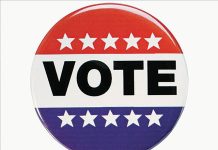These recent headlines sadden me: Clashes between African-Americans and the police; political candidates who demean groups of people based on their race, gender, or religion; and parental uproar at a change in BCSC’s nondiscrimination statement.
In each of these situations we seem to be focusing on how people may be different from us. While differences can enrich life, ignoring our similarities can lead to misunderstandings, violence, hatred and depressing headlines.
How can we get past these differences and find the similarities? Thomas B. Griffith, a judge on the U.S. Court of Appeals for the D.C. Circuit, wrote about this challenge in the spring 2016 issue of the BYU College of Humanities alumni magazine. He advocates that we learn another’s language with language meaning “more broadly the culture and worldviews of another person.” Learning another’s language “is an effort to understand, as best we can, how others experience life.”
This is not always easy. Griffith points out that “Learning another’s language wrenches us out of the comfortable and safe world we have created: a world filled with people just like us who share our tastes, perspectives, and sensibilities.” However, as we come to understand others we can see how they are actually like us.
I am not black, but as I try to understand how blacks experience life I can see that they want to be treated with respect and live their lives normally just like I do. They don’t want to be singled out and treated differently because of their race. Likewise, police officers don’t want to be singled out because of their profession. We’re all just people with similar wishes to live our lives safely and happily.
The media and many political candidates like to emphasize differences to make us scared of each other. Yes, getting to know people that are different than you can be a bit uncomfortable, but as you get to know them you can find common ground. Ask them about their families, their goals and their worries, and you’ll see that you’re not so very different in the things that really matter. The differences become less important when you take the time to find similarities with others.
Unfortunately, since we don’t always treat everyone well, we must create policies to ensure all are treated fairly. Bartholomew Consolidated School Corp. has recently come under fire since it decided to specifically include transgender identity in its anti-discrimination policy. Some parents are worried about which bathroom transgender students will use. I realize that having someone of the opposite biological gender using the same bathroom as you could be uncomfortable, but don’t transgender students deserve to feel comfortable, too? Couldn’t parents use this as an opportunity to teach their children that everyone should be treated with respect?
I was particularly distressed to read an Onion in The Republic criticizing school leaders “for caring about a very small minority over the large number of students.” Isn’t caring for the minority the purpose of anti-discrimination policies? What if you or your child was in that small minority?
I find it helpful to apply advice the character Atticus Finch gives in the book “To Kill a Mockingbird”: “You never really understand a person until you consider things from his point of view… Until you climb inside of his skin and walk around in it.”
Imagining the feelings that I would have if I were the parent of a transgender student or a transgender student helps me to discover our similarities. This echoes Griffith’s advice to learn another’s language.
When I picture someone wanting to hurt me because of my race or profession, I develop empathy for blacks and police officers allowing me to better understand their challenges. I can also feel the frustration of those who politicians reject based solely on their religion when I take the time to see things from their point of view.
Getting out of our comfort zone and accepting others by learning their language or walking around in their skin is a challenge, but leads to greater understanding and appreciation of each other. Hopefully this effort to find similarities can prevent the fear, violence and hatred that come from focusing too much on our differences. I’d rather read headlines about how people are helping each other and getting along than about another division in our society.
Susan Cox is one of The Republic’s community columnists, and all opinions expressed are those of the writer. She is a mother, an adjunct instructor of English at Ivy Tech Community College-Columbus and a substitute teacher for Bartholomew Consolidated School Corp. She can be reached at [email protected].




